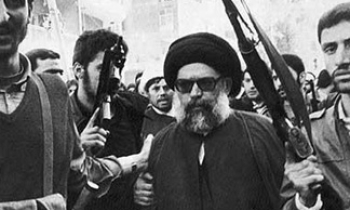A Mexican journalist who applied for U.S. asylum after being severely beaten in Hermosillo, Sonora, has decided to drop his petition.
Claudio Tiznado recently told the Committee to Protect Journalists, which documented his case, that his decision didn't come easy. But given the diplomatic relations between the two countries and his inability to pay an attorney, Tiznado said he believed securing asylum would be an uphill battle.
Immigration officials wouldn't comment on Tiznado's case, but said Mexican nationals who can prove their claims are eligible for asylum after special review.
Government data show asylum is routinely granted to Mexicans, albeit in relatively small numbers. In 2006, for example, 84 people from Mexico received asylum, compared with Haiti's 2,431 and Venezuela's 1,085.
In an e-mail to the New York group earlier this month, Tiznado cited concerns that he would be unable to work as a journalist while he waited for a resolution to his asylum case — an often lengthy process.
Even at the risk of physical harm, Tiznado said, he plans to continue practicing "unorthodox and independent journalism" in his country. Mexico is considered the world's second-most-dangerous for journalists, behind Iraq.
Tiznado, 33, came to Tucson in early May seeking asylum, which the government may grant to people who fear persecution in their country based on race, nationality, religion, political opinion or membership in a particular social group.
The newspaper journalist attributed his April beating by two men to a series of investigative stories in March that portrayed Cananea, Sonora, as a drug haven with corrupt police and politicians. He worked at the bimonthly Periódico Géneros in Hermosillo, the Sonoran capital. Previously, he reported at El Imparcial, the state's largest daily newspaper.
Carlos Lauría, the committee's Americas program coordinator, said the group respects Tiznado's decision to return home, but is concerned for him.
"The situation is such that Mexico must respond and protect journalists, as well as encourage freedom of expression."
Numerous journalists in Sonora and other Mexican states have vanished or died in recent months as drug cartels wage intensified battles against rivals and government forces.
Mexico's risky conditions for journalists don't necessarily make it easier for members of the press to receive asylum, said Marie Sebrechts, a spokeswoman for U.S. Citizenship and Immigration Services.
"It's not a quota system," she said. "Asylum is not based on groups. It's based on individuals who come forth and demonstrate a real fear of persecution that would prevent them from going back to their home country."
But Tucson attorney Jesús Romo said there is no denying the U.S. government views asylum cases from Mexico as sensitive. The application process is the same for everyone, he said, but Mexican cases receive added scrutiny.
"What's delicate about them is the relationship between Mexico and the United States," he said. "When you have an accusation that imputes some sort of fault with that very entity that you're working with, then you have to be very careful."
Romo has handled several asylum cases for Mexican clients. In early 2004, he began representing three longtime Cananea miners who filed for asylum after fleeing their hometown for Tucson. The men applied for asylum on the grounds of political persecution for their involvement in labor organizing. One, Lauro Montoya, has been granted asylum, and Romo said he expects that it's a matter of time before the other two applicants receive it.
The roughly 25 people now seeking asylum with assistance from the Asylum Program of Southern Arizona are from African regions steeped in turmoil, said attorney Renee Kuhn.
Most of the asylum applicants are people who became targets after fighting for democracy in their countries or because they were members of political organizations, she said.
"In order to get asylum, the law requires persecution," Kuhn noted. "The conjecture is that there are not a lot of people being persecuted in Mexico."
●Contact reporter Lourdes Medrano at 573-4347 or lmedrano@azstarnet.com.









